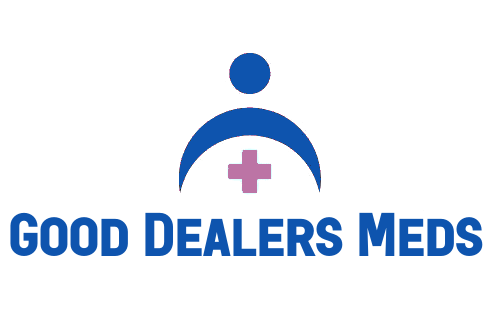One of the most prevalent neurodevelopmental diseases in children is ADHD. It frequently persists into maturity and is typically first diagnosed in childhood. Children with ADHD may struggle to focus, manage impulsive behaviors (doing without considering the consequences), or be extremely active.
People with ADHD can achieve great success in life. But without proper diagnosis and care, ADHD can lead to serious problems like academic failure, stress in the home, relationship issues, depression, substance abuse, accidents, and job failure. The importance of early detection and treatment cannot be overstated.
Signs and Symptoms
Some people with ADHD primarily exhibit inattentional symptoms. Others primarily display signs of impulsivity and hyperactivity. Both forms of symptoms can occur in certain persons.
While inattention, impulsivity, and unfocused activity are common in many people, they manifest differently in those with ADHD.
- Are more severe
- Occur more often
- Interfere with or reduce the quality of how they function socially
Types Of ADHD
Depending on which symptoms are most prominent in the individual, there are three ways that ADHD manifests itself:
Inattentive Presentation: The person finds it challenging to pay attention to details, plan and complete tasks, and follow directions or conversations. The individual gets easily sidetracked or overlooks small elements of daily activities.
Hyperactive-Impulsive Presentation: The individual chatters a lot and fidgets. Long periods of stillness are challenging. The person is restless and struggles with impulse control. Impulsive persons may speak suddenly, seize objects from others, or interrupt others frequently. The person finds it challenging to follow instructions or wait their turn.
Combined Presentation: The person exhibits both of the above sorts of symptoms in equal measure.
Managing Symptoms Of ADHD
Everyone should prioritize their health, but children with ADHD may find it to be especially crucial. A healthy lifestyle, in addition to behavioral therapy and medication, can help you manage with the symptoms of ADHD. Following are some beneficial healthy habits:
- Creating a nutritious diet that includes consuming enough of fruits, vegetables, whole grains, and lean protein sources is important.
- Depending on age, engaging in everyday physical activity.
- Getting the appropriate amount of sleep every night.
Causes of ADHD
Researchers are examining the cause(s) of and risk factors for ADHD in an effort to improve treatment and lower the risk that someone would get it. Current research indicates that genetics plays an important role in ADHD, despite the fact that the cause(s) and risk factors are unknown. Recent research relates genetic causes to ADHD.
Scientists are researching additional potential causes and risk factors in addition to genetics, such as:
- Brain Injury
- Exposure to Environmental Risks During Pregnancy
- Alcohol and Tobacco Use During Pregnancy
- Premature Delivery
- Low Birth Weight
The widely held beliefs that parenting, excessive television viewing, excessive sugar consumption, or social and environmental variables including family conflict or poverty contribute to ADHD are not supported by research. Of course, many factors, including these, could cause viscous stresses, particularly in some individuals. However, the data is insufficient to draw the conclusion that they are the primary causes of ADHD.
Treatment and Therapies
While there is no known treatment for ADHD, existing medications may lessen symptoms and enhance performance. Medication, psychotherapy, instruction or training, or a mix of treatments are all examples of treatments. The most effective way to treat ADHD is typically a mix of medication and behavior therapy.
Medication
While there is no known treatment for ADHD, existing medications may lessen symptoms and enhance performance. Medication, psychotherapy, instruction or training, or a mix of treatments are all examples of treatments. The most effective way to treat ADHD is typically a mix of medication and behavior therapy.
Stimulants
“Stimulants” are the most popular class of drugs used to treat ADHD. Although it may seem strange to treat ADHD with a drug that is regarded as a stimulant, the prescription works by raising the levels of dopamine and norepinephrine, two neurotransmitters that are crucial for thinking and attention.
Stimulant medicines are regarded as safe when used under medical supervision. However, they can have adverse effects, especially if misused or taken in excess of the recommended amount, making it necessary for a patient’s healthcare provider to keep track of any possible drug reactions.
You can buy stimulants online from our store. The most common stimulant used in medication for the treatment of ADHD are:
Non-stimulants
Some other ADHD treatments don’t use stimulants. These drugs take longer to start functioning than stimulants, but they can also help an ADHD patient with focus, attention, and impulsivity. When a patient has bothersome stimulant side effects, when a stimulant proves ineffective, or in combination with a stimulant to boost effectiveness, doctors may prescribe a non-stimulant
To choose the appropriate drug, dosage, or medication combination, doctors and patients can collaborate.
Therapies
It has been demonstrated that a number of particular psychosocial therapies can aid in symptom management and enhance daily functioning in people with ADHD and their families.
Experts in mental health can provide information about ADHD and how it impacts families. They can aid in the development of new abilities, perspectives, and interpersonal relationships for both the child and his or her parents.
Treatment for anxiety or depression symptoms that may coexist with ADHD symptoms has a higher chance of success.
Behavioral therapy is a sort of psychotherapy that seeks to assist a person improve their behavior.
Cognitive behavioral therapy teaches people how to be aware of and accept their own thoughts and feelings in order to enhance focus and concentration. The therapist also exhorts the ADHD patient to adapt to the changes in lifestyle that result from therapy, such as exercising restraint or restraining the temptation to take unnecessary risks.
Stress management techniques can help patients with ADHD deal with stress and respond calmly to their child’s conduct.
Other Possible Treatments
Some ADHD patients find relief from alternative forms of treatment, such as avoiding specific foods and taking supplements. However, there isn’t much proof that they work, so you shouldn’t try them without a doctor’s advice.
Diet: A balanced diet should be followed by those who have ADHD.
Supplements: Dexedrine Pills and amphetamine supplements may be advantageous for those with ADHD, according to certain studies. Keep in mind that some supplements should not be taken for an extended period of time since they can build up to harmful amounts in your body.

